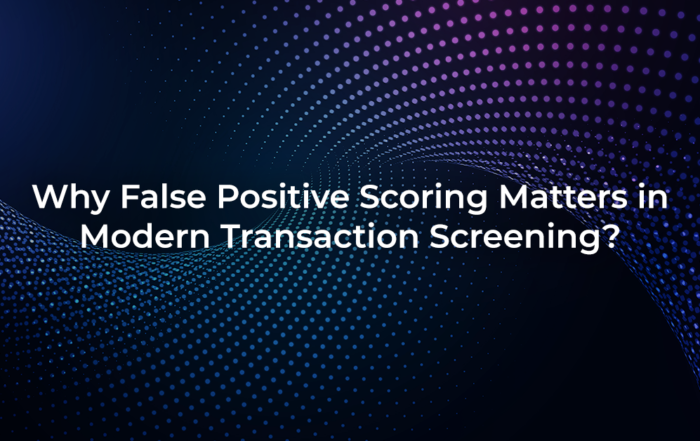
How AI Helps Banks On AML Compliance
Anti-money laundering (AML) is defined as a set of regulations and procedures designed to prevent criminals from concealing illegally obtained funds as legal income. AML laws cover a relatively limited number of transactions and criminal acts with great indications.
However today the AML compliance processes include manual, data-intensive and repetitive tasks that are becoming inefficient at preventing money laundering acts. Thus, especially for large banks, the fight against financial crimes have become so complex, costly, risky and hard to manage.
To overcome the obstacles of AML compliance faced by banks, it would be better to first understand some of them.
Business Challenges of AML Compliance
As the AML regulations become more complex and difficult to comply with, banks experience a hard and heavy responsibility for AML compliance requirements. Here are some of the challenges the financial industry faces:
Processes
The complexity about processes like the high level of manual work for screening, multiple handovers or multiple iterations can cause false alarms that drive to greater operational risks, large fines or at least relationship managers to waste lots of their valuable time on fixing them.
Regulations
The AML processes and systems of a bank must support Know Your Customer (KYC) activities with a deeper Customer Due Diligence (CDD). Besides the Suspicious Activity Report (SARs) must have been filled within 90 days before but now the regulation is lowered to just 60 days.
Costs
One of the most important challenges is the extremely high costs of fighting against financial crime. European banks come close with $20 billion spent annually per year. And the US alone spends $23.5 billion per year as the cost of the anti-money laundering (AML).
Although the costs for AML spendings are extremely high, 90% of European banks have been faced with a fine.
Legal Entity and Client Data
Most of the banks use low-quality and unstructured data. This brings difficulties with data documentation and sharing, aggregation from false databases or data extraction. Banks were managing their database inside their own constitution but recently they have started to work with third-party institutions.
AI Solutions For AML Compliance
Most banks spend lots of labour to meet new AML requirements and expectations as we listed below. Financial institutions are often reluctant to invest in this area, leading to the old-fashioned analytical infrastructure of AML teams.
But with the increased risk of fines and hard to track and avoid criminal acts, it becomes more significant for any AML professional to follow, develop and maintain a comprehensive AML financial framework. That’s why the global anti-money laundering (AML) software market is expected to reach $1.77 billion by 2023.
Anti Money Laundering applications powered by AI assist financial institutions to meet their AML compliance requirements and tackle financial crimes automatically.
Here are some benefits of an experienced AI-powered AML application provider like Fineksus can offer to a financial institution:
PayGate Inspector
Today, PayGate ™ Inspector offers a new generation of solutions for banks to recognize their customers and secure transactions. This new generation of high-tech, fast blacklist control solution is ready for SWIFT Alliance integration over ADK. Here are the beneficial actions PayGate Inspector offers:
By using PayGate Inspector can simply comply with Anti-Money Laundering (AML) regulations, screen customers before onboarding, regularly filter customers with automatically updated blacklists or PEP Lists, prevent emission or processing of any transaction referring to blacklisted entities, assign violations to users or manage group investigation and many more.
PayGate Analyzer
Paygate Analyzer automatically detects anomalies by using advanced AI algorithms. Paygate Analyzer enables to monitor customer transactions, detect deviations from existing profiles, profile customers and compare current patterns of activity to historical activity. And you can check the list below to learn the other activities provided by the Paygate Analyzer.
Paygate Analyzer also provides mapping, investigating and reporting suspicious activities, creating flexible scenarios depending on the risk appetite and modify them from UI, translate local regulations into scenarios, managing risk scores and more.
AI priorities violations based on users previous decisions. Additionally, the false positive ratio can be decreased by using intelligent algorithms. This helps users to concentrate on violations which have a strong possibility.
Know Your Customer (KYC)
Know Your Customer (KYC), is the name of the methods conducted by a bank or financial company to verify the identity of clients and screen them before onboarding them. This allows them to evaluate the risks of implementing a business relationship with the client.
KYC can get integrated PayGate Inspector to scan customer against Sanctions and PEP, calculate the risk of customers based on dynamically defined rules of risk categories
By using KYC financial institutions can simply add advisory opinion to change the score of the customer or integrate dynamic web service for customer onboarding.
With all these pioneer solutions and more, Fineksus is not just a service provider for the finance industry but instead, a success-oriented experienced partner to eliminate the risk of financial crimes.
If you have further questions about Fineksus’ AML solutions or want to learn how to get adapted to the new AI-powered solutions with a strong partner, just contact us.
Why False Positive Scoring Matters in Modern Transaction Screening
Emrah Öztürk2025-12-24T15:43:17+03:00
Why False Positive Scoring Matters in Modern Transaction Screening? Banks and financial institutions aim for stronger AML controls. The real challenge is not detection, but the noise created by false alerts. These […]
Sanctions Evasion Techniques and How to Detect Them
fineksus2025-11-05T12:11:29+03:00
Sanctions Evasion Techniques and How to Detect Them Sanctions evaders move faster than policy updates. From spoofed ship positions to shell distributors, the playbook keeps shifting, so what should banks and payment firms […]
AML Compliance Amid Growing Tensions in the Middle East
fineksus2025-11-05T12:07:31+03:00
AML Compliance Amid Growing Tensions in the Middle East Conflict zones across the Middle East are reshaping how financial institutions manage anti-money laundering (AML) and counter-terrorism financing (CTF) obligations. What used to be […]



